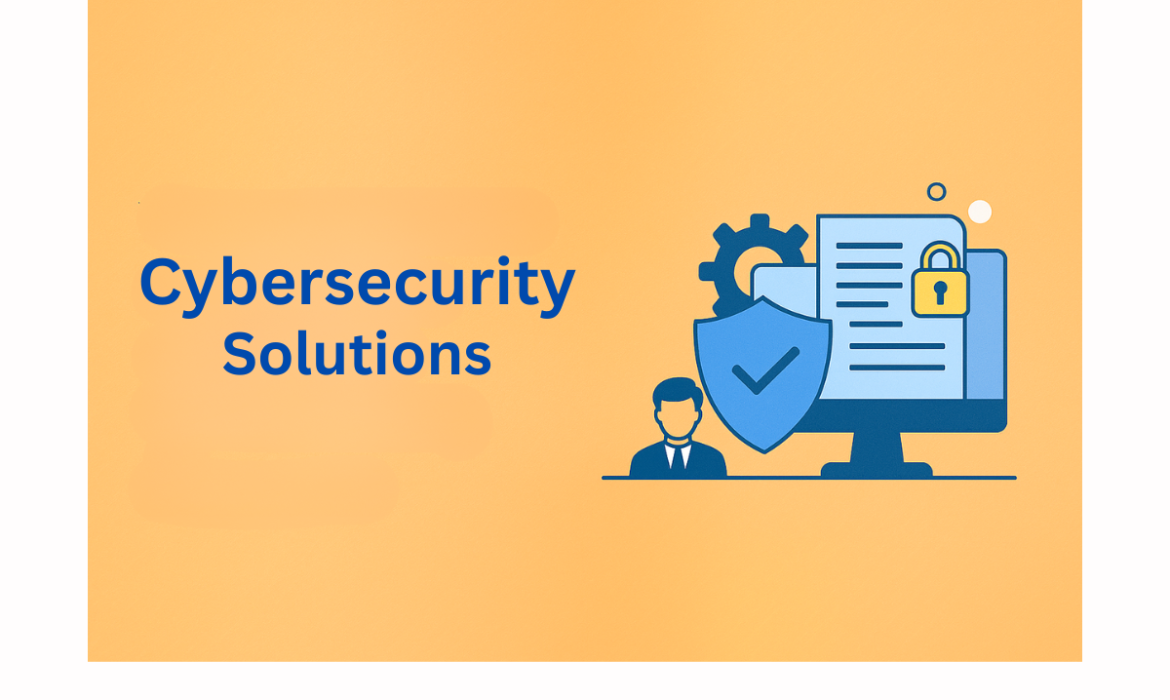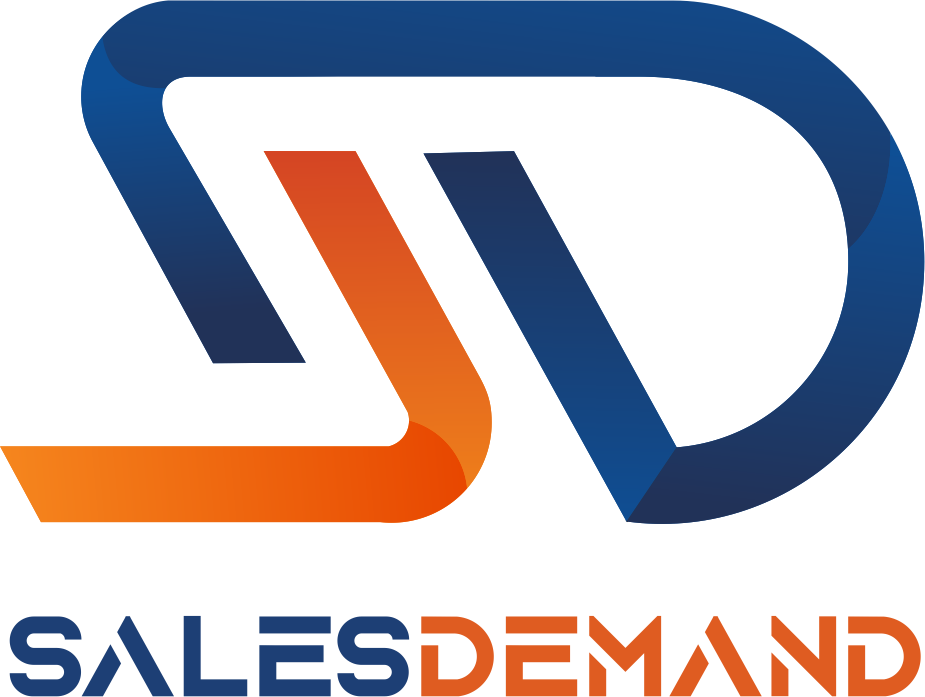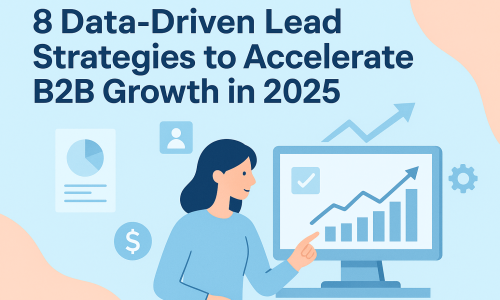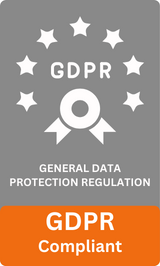
“Security is not a product, but a process.”
— Bruce Schneier
In a time where one phishing email can shut down operations and a single breach can spark financial ruin, cybersecurity has moved from IT backrooms into the C-suite. Today, it’s no longer just about protecting data; it’s about enabling business continuity, building trust with stakeholders, and meeting increasingly complex compliance demands.
According to Gartner, global cybersecurity spending is projected to reach $213 billion in 2025, up from $193 billion in 2024, as organizations race to secure cloud workloads, combat AI-driven threats, and comply with tougher regulations. But with hundreds of vendors in the market, how do B2B buyers decide which cybersecurity solution is worth their investment?
Understanding what drives these decisions can help cybersecurity vendors fine-tune their offerings and messaging, turning prospects into long-term partners.
Table of Contents
Toggle1# Business Risk Mitigation and Regulatory Compliance
First and foremost, B2B buyers are risk managers. Protecting sensitive data, maintaining operational uptime, and staying compliant are their top mandates.
Why it matters:
A single ransomware attack can cause millions in damages, not just in recovery costs but in customer churn and long-term reputational harm.
What buyers are prioritizing:
- End-to-end encryption for sensitive customer data
- Compliance with frameworks like GDPR, HIPAA, ISO 27001, and NIST
- Sector-specific needs (e.g., PCI DSS for e-commerce, FINRA for financial services)
- Built-in auditing and reporting features for easier compliance verification
Example: A fintech startup scaling rapidly across geographies may prioritize vendors who can offer region-specific data residency, ensuring they’re compliant with both EU GDPR and California’s CCPA.
2# Demonstrated ROI and Cost Predictability
Cybersecurity has evolved into a strategic business priority. Buyers are now expected to justify every line item, including security tools.
What they evaluate:
- Whether the tool lowers breach risks (and thus, financial liabilities)
- How does it help reduce internal headcount or redundant tasks
- Whether it allows the company to meet customer SLAs more efficiently
- If the vendor offers transparent, scalable pricing tiers for future growth
Stat to Note: According to Forrester, 59% of B2B tech buyers consider predictable pricing and measurable ROI critical in vendor selection.
Bonus Tip for Vendors:
Bundle cost calculators and ROI benchmarks in the sales cycle. Help buyers make a data-backed case internally.
3# Scalability and Infrastructure Flexibility
No two businesses grow at the same pace, and buyers want solutions that grow with them, not slow them down.
What B2B buyers look for:
- Cloud-native or hybrid options (especially for companies adopting remote-first policies)
- API-first architecture that integrates with existing SIEM, CRM, and productivity tools
- Seamless onboarding for new users, offices, or geographies
- Multi-tenancy for MSPs or enterprises managing different units
Scenario: A global marketing agency may need role-based access across regions and departments while maintaining centralized control over data governance.
4# Technical Capabilities and Innovation
With the sophistication of threats like deepfake phishing and AI-generated malware, the bar for technical capabilities has risen sharply.
Features that influence purchase decisions:
- Real-time threat intelligence and behavior-based detection
- Zero Trust architecture and endpoint security
- Automated incident response and containment
- Advanced AI/ML threat hunting capabilities
- Support for DevSecOps and cloud workload protection
Buyers often ask: “What are you doing to protect us against threats we don’t even know about yet?”
Pro tip for vendors: Maintain a public roadmap or changelog. Transparency around innovation builds trust.
5# Vendor Credibility and Market Reputation
When B2B buyers shortlist cybersecurity vendors, they look beyond glossy brochures; they want proof.
What earns trust:
- Gartner Magic Quadrant or Forrester Wave placement
- Real-world case studies and testimonials
- Technical certifications (e.g., SOC 2, ISO 27001, CSA STAR)
- Experience with companies of similar size or industry
- Media presence and thought leadership
Real Insight: Peer influence is powerful. A positive reference from an industry peer often closes the deal faster than any sales demo.
6# Support, Onboarding, and Responsiveness
Once the contract is signed, the real test begins. The onboarding experience and customer support determine long-term satisfaction.
Non-negotiables for B2B buyers:
- 24/7 support availability (especially across time zones)
- A responsive and knowledgeable account manager
- Onboarding that includes custom implementation plans
- Access to rich documentation and training resources
- Periodic security health checks and reviews
7# Strategic Alignment and Industry Understanding
Modern buyers want more than just technology; they seek partnerships. Vendors who understand the buyer’s vertical and speak their language gain instant credibility.
What they assess:
- Has the vendor served similar businesses before?
- Can they offer consultation beyond the product?
- Do they customize solutions based on use case or risk profile?
- Do they respect company culture and governance practices?
Tip: Show, don’t tell. Use vertical-specific demos, or co-author whitepapers for buyer industries like fintech, edtech, or healthcare.
8# Ease of Use and Internal Adoption
Even the most powerful cybersecurity solution can fall flat if it’s too complex to use. B2B buyers must ensure that their internal teams, from IT to HR, can easily adopt and manage the system.
What drives usability?
- User-friendly dashboards and visual alerts
- Drag-and-drop policies or intuitive rule builders
- Role-based access controls and mobile app availability
- Seamless updates with zero downtime
User experience is a silent dealbreaker. If it causes friction, internal champions will lose enthusiasm, and renewal may be at risk.
9# Risk Sharing and SLA Guarantees
As cyber threats become costlier, buyers are seeking shared responsibility from their vendors.
What this includes:
- Performance-based SLAs on uptime, detection speed, and response time
- Cyber insurance partnerships or breach liability terms
- In-depth risk assessments pre-implementation
- Proactive threat hunting reports and red team exercises
Example: A large retail enterprise may ask vendors to co-sign breach responsibility clauses, ensuring they walk the talk on security.
10# Vendor Stability and Vision
The cybersecurity space is notorious for rapid M&A activity. Buyers are cautious about vendors who might get acquired, pivot direction, or go bust.
Stability factors:
- Vendor’s funding history and burn rate
- Customer retention rates and logos
- Product roadmap aligned with industry trends
- Transparency around vision and leadership
Buyers want assurance they won’t have to migrate after 12 months. Future stability is a buying signal.
Conclusion: Winning the B2B Cybersecurity Buyer
To win in today’s B2B cybersecurity landscape, it’s not enough to offer superior threat protection. Buyers want vendors who:
- Understand their pain points
- Offer quantifiable business value
- Build trust through transparency and reliability
- Act as partners, not just product providers
The sales journey has shifted from a simple transaction to a consultative, strategic, and continuous process.
As one CISO aptly put it: “I don’t need another dashboard. I need a partner who can make sure I never have to explain a breach to our board.”
I hope you find the above content helpful. For more such informative content, please visit SalesDemand.








